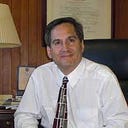Informing voters about our judges is essential for our democracy
San Francisco judicial elections should be driven by facts and data;
Stop Crime SF’s voter education effort should be lauded, not feared.
Over the course of our careers and lifetimes, we are called upon to make decisions that affect our own lives and futures and those of loved ones and our communities. Having access to vital information and committing to ground one’s decisions in facts, law and good judgment are essential. As a member of the group Stop Crime SF, I believe San Francisco voters are entitled to have critical and relevant information about our local judges who may appear on our ballot at the March 2024 election.
That’s why I’m helping Stop Crime SF with its program to educate voters about the decisions of San Francisco Superior Court judges. StopCrime SF is a grassroots group of San Francisco neighbors from all walks of life who share a fervent concern about the criminal justice system and the wellbeing of all San Franciscans. Community safety and protection are fundamental responsibilities of both the government and all members of our society.
I was surprised to see my former colleague, Berkeley Law School Dean Erwin Chemerinsky, write an OpEd in the Chronicle attacking the Stop Crime SF program. While I have great respect for Dean Chemerinsky, he is profoundly wrong in his outsized criticism of our work to help voters understand the judiciary.
Through judicial elections, California law entrusts its citizens with the power to retain or reject sitting judges. Dean Chemerinsky’s approach would deprive voters of important factual information about the decisions of those judges and how they affect our daily lives. We need more light, not less, on the public decisions of judges.
StopCrime SF’s plan to survey defense lawyers and prosecutors who appear before the judges regularly as well as the judges themselves will produce unique, informed and balanced insights into the activities taking place in our local judicial system. It comes at a time when citizens seek more answers about what is going on in our courts and in the aftermath of the historic recall of former District Attorney Chesa Boudin (recently hired by Dean Chemerinsky at his law school.)
Most significantly, StopCrime SF is specifically asking the judges themselves how voters should evaluate judicial records and what information is relevant to the voters’ decision on whether to retain judges. StopCrime SF is also asking for portions of the questionnaires judges submitted to the governor when they sought appointment to the bench. Certainly if the information is important and legitimate for the governor to base his appointment decision, it is equally valid for voters to have that information when they decide whether to retain or reject the judge.
Without ever checking with us, Dean Chemerinsky asserts that StopCrime SF wants judges to rule in favor of police when there are claims of excessive force or violations of suspects’ constitutional rights. Had he even viewed our website, stopcrimesf.com, he would have read our insistence on “accountability for law enforcement. Police who abuse their power and cause great harm should face consequences.” Our vision for San Francisco is a city where all residents feel safe; where people take responsibility for the crimes they commit; where rehabilitation programs correct harmful behavior and where jails are reserved for the most dangerous and repeat offenders.
Dean Chemerinsky is free to disagree with our principles but he is not free to misstate them or condemn our efforts to let the public know what is going on daily in our courtrooms. For too long, judges and the judicial process have been cloaked in secrecy. Judicial proceedings are frequently mind-boggling to all but lawyers and judges. It is no wonder average citizens shudder when they receive a jury duty notice and crime victims and witnesses too often leave courtrooms with little understanding of what has occurred.
Dean Chemerinsky acknowledges that voters have a say in judicial elections. StopCrime SF members, with the input of courtroom participants themselves, will publicize factual information about judges and judicial proceedings in order to equip and empower voters to make informed decisions. In 2020, prior to the last local judicial elections, over 300 attended StopCrime SF’s election forum, a clear reflection of the need and hunger for information on our judges. Notwithstanding Dean Chemerinsky’s concern, voters desire and can handle the truth!
As for his concern about “pressuring” judges, millions of Americans have marched for or against court decisions on women’s reproductive freedoms, freedom to marry and other matters of societal importance. That’s not pressuring either. It’s our democratic right to inform and persuade one another.
Dean Chemerinsky admits that “deterrence of crime is most linked to the certainty of prosecution and conviction, which turns on police, prosecutors and courts.” In 2022, San Franciscans spoke loudly and recalled the former District Attorney. On March 5, 2024, voters can make our voices heard in contested judicial races. Through StopCrimeSF’s leadership, voters will be armed with fact-based analysis to cast informed votes and elect judges who will promote justice, public safety and our values as a city.
StopCrime SF member John Trasviña is the immediate past Dean of the University of San Francisco School of Law and has served in three Democratic presidential administrations.
